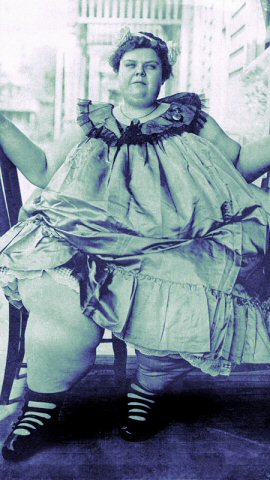
The effectiveness of low-carbohydrate, high-fat diets may depend on increased levels of a newly identified “starvation hormone” produced by the liver, report researchers in the journal Cell Metabolism. Two studies in the issue show that the hormone plays a critical role in the metabolic shift seen in animals after a period of fasting and in those fed an Atkins-like diet. That shift is characterized by an increased reliance on fat stores as an alternative source of fuel when glucose levels are low.
Eleftheria Maratos-Flier, who led a Harvard University research team, reports that increased blood levels of liver-derived fibroblast growth factor 21 (FGF21) are required for fasted mice and mice on a carbohydrate-restricted diet to “switch gears” and begin burning fat. Likewise, an accompanying study led by Steven Kliewer of the University of Texas Southwestern Medical Center found that FGF21 mobilizes fat in food-restricted animals and those with chronically elevated concentrations of the liver hormone. Kliewer’s team further showed that the hormone contributes to energy-conserving behavioral changes as animals cope with food shortages.
“What’s really exciting is that mice with excess FGF21 – even when they are fed – look like they are fasted,” said Kliewer. “It’s startling that you can give one hormone and flip the whole metabolic profile.”
Background information to the new findings explained how mammals survive periods of nutrient deprivation by shifting from carbohydrates to so-called ketone bodies as a primary fuel source. Ketone bodies are produced from fatty acids transferred from storage in fat tissue to the liver when carbohydrates are scarce. During prolonged fasts, ketone bodies can provide nearly half of baseline energy requirements and up to 70 percent of the energy required by the brain.
“When you step back, the whole thing makes sense,” Kliewer said. “During fasting, the liver hormone communicates with adipose tissue to send fat to the liver. It turns on the metabolism of fat into ketone bodies – and at the same time, it sensitizes the animals to going into torpor to conserve energy. It’s clear that FGF21 is a principal component of the fasting or starvation response.”
The degree to which the physiological effects of a ketogenic diet in humans mimic those seen in mice remains to be determined, but Maratos-Flier is almost certain that low-carb, high-fat diets won’t work for everyone. “It may be that some people are more likely to turn on FGF21 than others,” she speculated. “In obese individuals, for example, high insulin levels may interfere with the liver hormone.”
Related articles:
Is Your Carpet Making You Fat?
Obesity Could Bankrupt UK Health System
Compound That Switches Off Appetite Discovered
Humans: Designed For Fatness
New Study Examines How Low-Carb Diets Work








Comments are closed.